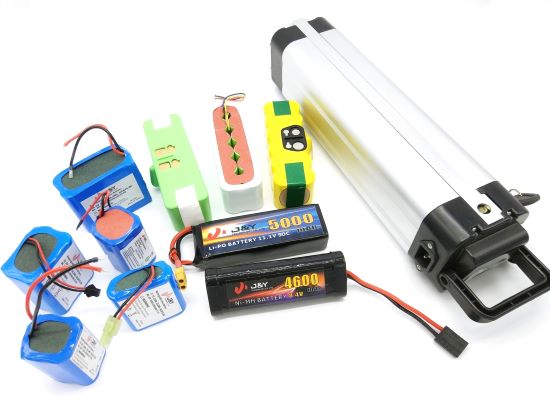In this article we will talk about the ionic lithium battery which is a modern invention after Li-ion battery and Li battery.
Because we have entered into a curious topic with ambiguous explanations, about the difference between these batteries. Therefore, we will provide you with authentic information.
In the 1900s the invention of the stable Li-battery was started; however, after decades, in 1970 the first lithium battery was available in the market. It gained great market share as being a viable option. After a few decades, the lithium-ion (Li-ion) battery constructed on a secondary cell was launched which features a rechargeable option to be used again and again.
The Li-ion battery was more stable, efficient performance, smaller size and more durable. These batteries were designed and manufactured for smartphones, laptops, emergency light batteries and almost all electronic devices.
A battery composed of lithium has always faced challenges of heat and explosion. If we don’t go in depth and point out the main reason, a Li atom is very reactive. So it requires a very maintained electrolyte composition.
What is an Ionic lithium battery?
Ionic lithium battery is a new invention of Li battery that uses an ionic liquid electrolyte. The need for these batteries were notably increased because of their compact size but dense power storage, fast charging, and less heat sensitivity.
Therefore, the electronics manufacturers took advantage and added more capabilities and mesmerizing features to their devices. To date the ionic lithium batteries are widely used for specialized purposes because they are expensive despite having advantages.
Ionic lithium batteries are commonly used in portable electronic devices, such as smartphones, laptops, and tablets, due to their long lifespan and high power output.
What is the largest problem with Ionic lithium batteries?
Ionic Lithium batteries face many challenges although they are sameway useful. One of the biggest problems with lithium-ion batteries is their tendency to overheat and explode.
The reason is thermal runaway that occurs when the battery’s temperature increases due to different factors but mainly because of a short circuit and heat.
A short circuit can occur internally or externally, either a faulty circuit can cause short circuit or due to external factors. The external factors most likely include high temperature, heat or physical damage. These explosions can be deadly when caught on fire or explosions.
Is Ionic lithium safer than lithium-ion batteries?
Both the batteries thus contain Li atom which is a very reactive metal. Any lithium battery either ionic lithium battery or Li-ion battery is potentially dangerous at high temperatures, heat contact or short circuits.
However, if you are thinking how to handle it carefully, we will be happy to explain this to you. These batteries require a maintained temperature to work, the circuit protectors can be used to break the connection incase of short circuit or damage. This way it can add years to their lifespan, provide excellent backup and are safe to use just like other chemical batteries.
Why are lithium-ion batteries not allowed?
You have heard it correctly, Li-ion batteries also face many restrictions due to their safety concerns. For example, lithium-ion batteries are not allowed to be shipped on airplanes because of the risk of fire or explosion. The reason is the airplane’s cabin pressure can cause increased temperature making a Li-ion battery to overheat and catch fire.
Similarly, lithium-ion batteries are not allowed in landfills because they can leak toxic chemicals into the environment. Moreover, the manufacturers of lithium batteries also use special environments to store them safely. It is also shipped with careful precautions like complete discharging and damage protection plastic casing
Which lithium battery is the best?
There are several types of lithium batteries available, and the best one for you depends on your specific needs and requirements. For example, if you are looking for a Li-battery for your smartphone, you might want to consider a lithium-polymer battery LiPo. LiPo battery is known for its lightweight and slim design while providing a good power storage. LiFePO4 batteries are also powerful to withstand more charge/discharge cycles and has a longer life span
Similarly, if you need a lithium battery for a power tool, you might want to consider a lithium-iron-phosphate battery for its high power output and long lifespan.
Conclusion:
In this article we discussed a new invention of lithium battery which is known as Ionic Lithium Battery that uses an ionic liquid electrolyte. These batteries are smaller, have a higher power density, faster charging, and less heat sensitivity compared to its parent Li batteries.
Although this is a new and advanced ionic based battery faces challenges with overheating and exploding at high temperature or short circuit. But Ionic Lithium batteries are safer than Li-ion batteries and give a long lifespan if handled carefully. However, Li-ion batteries are not allowed on airplanes and in landfills. Therefore, the manufacturer of lithium batteries ship its batteries in plastic casing to protect from damage. Morever, their batteries are completely discharged when packed and comes in heat insulation packaging.


